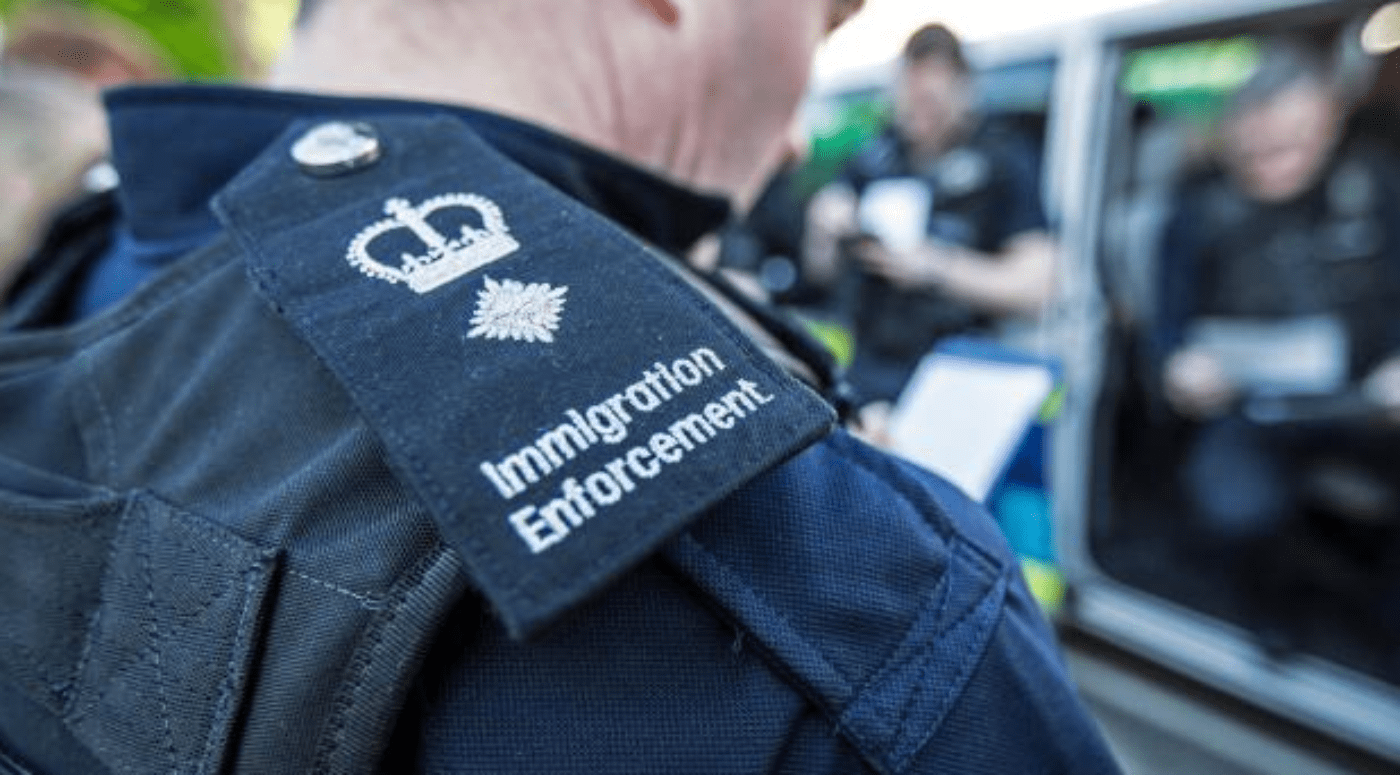

Conspiring to commit armed robbery is a grave crime with significant personal consequences for both perpetrators and victims, and this is just one reason the offence is taken so seriously by the UK courts. Obtaining accurate legal advice is crucial if you or someone you care about is accused of – or is already on trial for – conspiracy to commit armed robbery. This article defines conspiracy to commit armed robbery, provides examples, and details the punishments for this offence. It also explains whether first-time offenders are likely to be imprisoned for armed robbery.
What is the offence of assisting illegal entry or harbouring persons in the UK?
The offence of assisting illegal entry or harbouring persons in the UK is defined in Section 25 of the Immigration Act 1971. It is a crime to knowingly:
- make or carry out arrangements for securing or facilitating the entry into the UK of anyone who is an illegal entrant; or
- harbour anyone who is an illegal entrant or who has committed an offence under Section 24(1)(b) or (c) of the Immigration Act 1971 (these offences relate to overstaying and breaching the conditions of leave).
To be guilty of this offence, a person must know or have reasonable cause to believe that the person they are assisting or harbouring is an illegal entrant.
Regarding knowledge, the prosecution must prove that the accused knew that the person they were assisting or harbouring was an illegal entrant. This can be direct knowledge, such as if the accused was told by the person that they were an illegal entrant. It can also be indirect knowledge, such as if the accused knew that the person had no valid immigration status or that they had entered the UK illegally.
Examples of evidence that the prosecution may rely on to prove these elements include:
- Witness statements from people who saw the accused assisting or harbouring the person they are accused of assisting or harbouring.
- Evidence of the accused’s financial transactions, such as payments made to the person they are accused of assisting or harbouring.
- Evidence of the accused’s travel arrangements, such as tickets or itineraries.
- Evidence of the person’s immigration status, such as a passport or visa.
If the prosecution can prove these elements beyond a reasonable doubt, the accused will be convicted of assisting illegal entry or harbouring persons in the UK.
What are some examples of illegal entry or harbouring persons offences in the UK?
Here are some examples of conduct that could amount to illegal entry or harbouring persons offences:
Examples of assisting illegal entry include:
- smuggling someone into the UK in a vehicle
- providing false documents for someone to present at a port
- arranging for someone to travel to the UK on a false passport
Examples of harbouring an illegal entrant include:
- providing them with accommodation
- giving them money or other financial support
- helping them to find work
What happens if you are suspected of committing illegal entry or harbouring persons offences in the UK?
If you are suspected of committing illegal entry or harbouring persons offences in the UK, you can expect a legal process to be initiated. Here’s a general overview of what might happen in such cases:
Illegal Entry:
- Investigation: If you are suspected of facilitating or being involved in illegal entry into the UK, the authorities will investigate the matter. This may involve gathering evidence, interviews, and reviewing travel and immigration documents.
- Arrest: If there is enough evidence to suggest your involvement, you may be arrested. You will be informed of your rights and may be questioned. It’s advisable to seek legal counsel before answering any questions.
- Charge: Following the investigation, if the authorities believe they have enough evidence, you may be charged with illegal entry-related offences. You will be informed of the specific charges against you.
- Court Proceedings: You will appear in court, where you can plead guilty or not guilty to the charges. The trial will involve presenting evidence and legal arguments.
- Sentencing: If you are found guilty, the court will determine your sentence, which can include fines, imprisonment, or other penalties. The severity of the sentence depends on the nature of the offence and other factors.
- Appeal: If you are convicted and believe there were errors in the trial or you received an unjust sentence, you have the right to appeal the decision.
Harbouring Persons:
- Investigation: If you are suspected of harbouring individuals who have entered the UK illegally, a similar investigative process will occur, including the gathering of evidence, interviews, and reviewing relevant information.
- Arrest: If there is enough evidence to support the suspicion of harbouring persons illegally, you may be arrested. You will be informed of your rights and may be questioned.
- Charge: Following the investigation, if the authorities believe they have enough evidence, you may be charged with harbouring persons-related offences. You will be informed of the specific charges against you.
- Court Proceedings: Similar to illegal entry cases, you will appear in court to plead guilty or not guilty. The trial will involve presenting evidence and legal arguments.
- Sentencing: If you are found guilty, the court will determine your sentence, which can include fines, imprisonment, or other penalties. The severity of the sentence depends on the circumstances and the level of involvement in harbouring individuals who entered the UK illegally.
- Appeal: Just like in other criminal cases, if you are convicted and believe there were errors in the trial or that you received an unjust sentence, you have the right to appeal the decision.
If you are facing charges related to illegal entry or harbouring persons offences in the UK, know that immigration and border control regulations are complex and subject to change. This is why it is imperative that you get the advice of a qualified and experienced solicitor as soon as possible.
What is the sentence for an offence involving illegal entry or harbouring persons in the UK?
The sentence for an offence involving illegal entry or harbouring persons in the UK under the Immigration Act 1971 is punishable on summary conviction by a fine of up to £400 or imprisonment for up to six months, or both. On conviction on indictment, the maximum penalty is a fine or imprisonment for up to seven years, or both.
The court will consider a number of factors when sentencing an offender for this offence, including:
- The seriousness of the offence, such as the number of people involved and the level of planning.
- The offender’s motivation, such as whether they were acting for financial gain or humanitarian reasons.
- The offender’s previous criminal record.
In some cases, the court may also order the offender to pay a confiscation order, which is a financial penalty designed to deprive the offender of the benefits of their crime. Remember, the sentence imposed will vary depending on the individual circumstances of each case and the best way to judge potential sentences is to ask the advice of an experienced solicitor.
Will I go to prison if it is my first time committing an offence involving illegal entry or harbouring persons in the UK?
It is possible for someone to go to prison for a first time offence of assisting illegal entry or harbouring persons in the UK, but it is not inevitable. The court will consider a number of factors when sentencing an offender, including the seriousness of the offence, the offender’s motivation, and the offender’s previous criminal record.
For a first time offence, the court is more likely to impose a non-custodial sentence, such as a fine or a community order. However, the court may impose a prison sentence if the offence is particularly serious, such as if it involves a large number of people or if it is motivated by financial gain.
Here are some examples of non-custodial sentences that could be imposed for first time offences of assisting illegal entry or harbouring persons in the UK:
- A fine of £300
- A community order requiring the offender to complete, for example, 100 hours of unpaid work
- A suspended prison sentence
Ultimately, the decision of whether or not to impose a prison sentence for a first time offence of assisting illegal entry or harbouring persons in the UK is a matter for the court to decide based on all the factors of the case and the strength of the prosecution and defence.
Where to get further help
Any immigration offence is incredibly serious and that goes even for relatively minor involvements. If you or someone you care about is facing charges for these types of offences, getting in touch with an experienced criminal defence solicitor is a wise first step. For a free consultation about your options, contact the team at Stuart Miller Solicitors today.
OUR COMMITMENTS TO YOU:
-
Responsive
A legal expert will consult you within 24 hours of making an enquiry.
-
Empathetic
We will always treat you with trust, understanding and respect.
-
Specialised
Your case will be handled by an expert who specialises in your type of offence.
-
Proactive
We will take early action to end proceedings as soon as it is practically and legally possible to do so.
-
Engaged
You will be kept updated on your case at all times. We will provide a named contact available to answer your questions.
-
Caring
We understand this is a difficult and stressful time for you and your family. Our team will support you every step of the way.
-
Tenacious
We will never give up on your case. We fight tirelessly to get you the best possible outcome.

